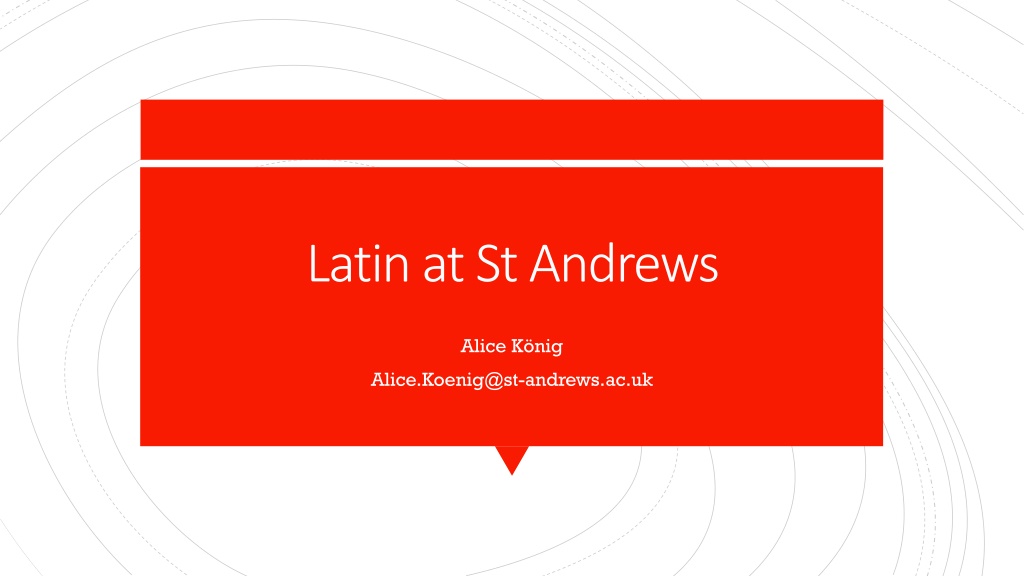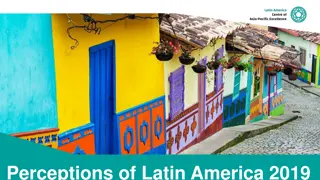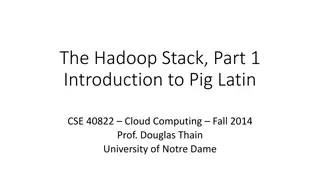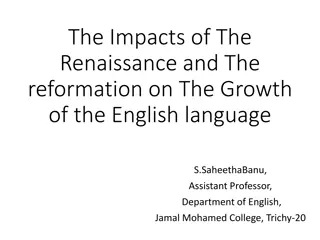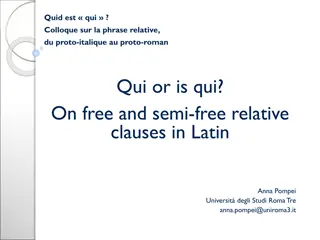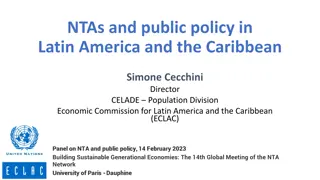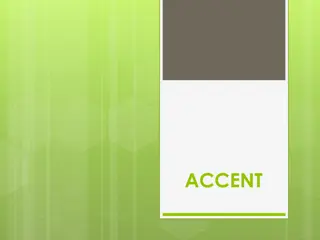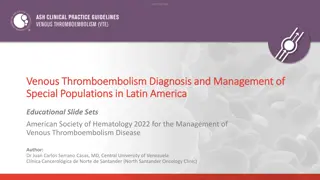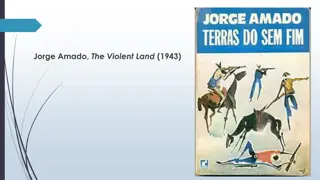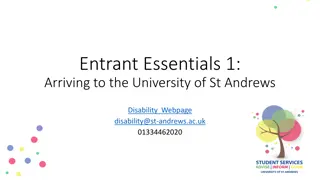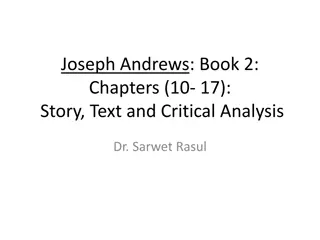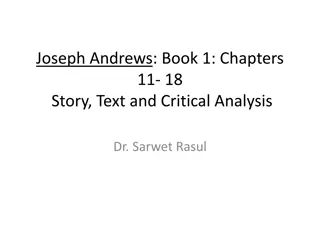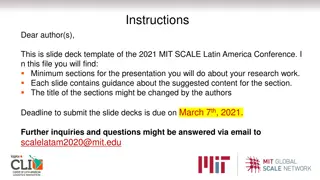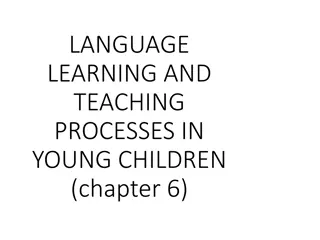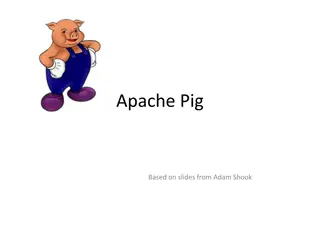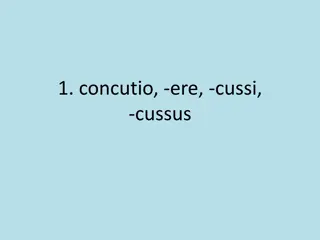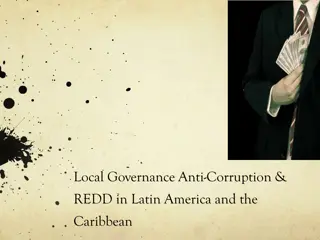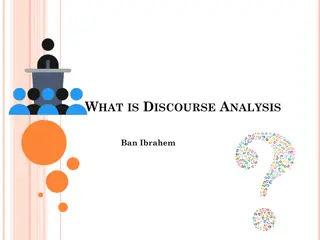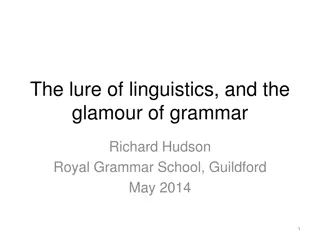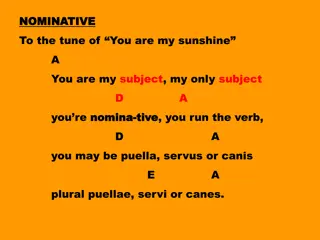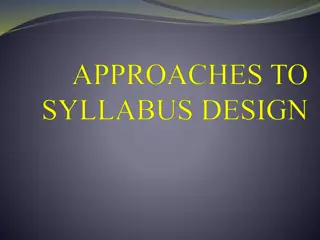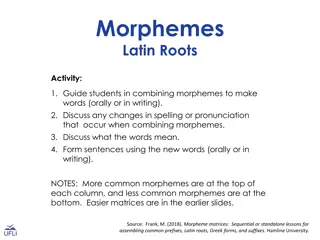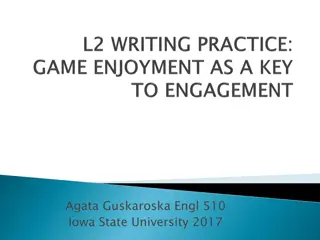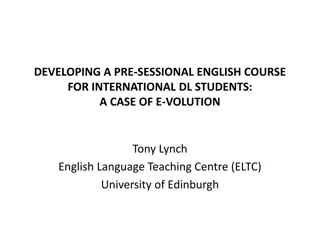Latin Language Learning and Research at St. Andrews
St. Andrews offers Latin courses for beginners to advanced levels, utilizing immersive experiences and spoken Latin to support diverse student needs. The curriculum includes intensive classes, diagnostic tests, and a focus on non-canonical Latin works. The program progresses to honours-level research-led teaching covering a wide range of Roman literary genres. The department encourages peer learning and provides tailored support for student cohorts, fostering a comprehensive learning journey in Latin language and literature.
Download Presentation

Please find below an Image/Link to download the presentation.
The content on the website is provided AS IS for your information and personal use only. It may not be sold, licensed, or shared on other websites without obtaining consent from the author. Download presentation by click this link. If you encounter any issues during the download, it is possible that the publisher has removed the file from their server.
E N D
Presentation Transcript
Latin at St Andrews Alice K nig Alice.Koenig@st-andrews.ac.uk
we welcome everyone from beginners to advanced we recently ran a three-year research project (Buckley, K nig & Kotarcic) on how best to support a diverse student body with different school-level qualifications: https://www.cambridge.org/core/journals/journal-of- classics-teaching/article/transitioning-between-school- and-universitylevel-latin-learning-a-scottish- perspective/137B473BE3BC5CFA2AEC3A9610DAD925 At St Andrews we use spoken Latin at all levels to level the playing field and give students an immersive experience in Latin language learning
Beginners Latin 4 classes per week Latin via Ovid (language leading to literature) Intensive! Supportive
diagnostic test language support: grammar/syntax language support: reading comprehensions/unseen translation LT1003/4 set text reading support literature classes World of Latin focus = non-canonical works (e.g. graffiti, Phaedrus Fables, Seneca s Apocolocyntosis, pseudo-Seneca s Octavia, the Latin exempla tradition, late Latin panegyric, early Christian writing) as a learning journey back to the canon in 2ndyear
Ex-beginners and advanced students are taught together for some of year 2 some separate teaching continues with tailored support for different cohorts but also valuable opportunities for peer learning Year 2 ongoing language support development of study skills (commentary & essay writing, class presentations, art of translation, etc) on the literary menu: e.g. Sallust, Cicero, Horace, Virgil, Livy, Ovid, Tacitus (texts vary from year to year)
LT Honours Research-led teaching from Roman epic to Theodosian Latin, tragedy to letter-writing, biography to anonymous authors. Roman satire and the modern context Staging Roman comedy
Next steps Questions? Upcoming sessions: Beginning Latin (Dr Nikoletta Manioti) Meeting new Latin texts (Dr Tom Geue) Further reading: S. Morton Braund (2002), Latin Literature S. Harrison (2006) A Companion to Latin Literature https://www.perseus.tufts.edu/hopper/ M. Beard (2013) Confronting the Classics https://eidolon.pub Contact: alice.koenig@st-andrews.ac.uk
